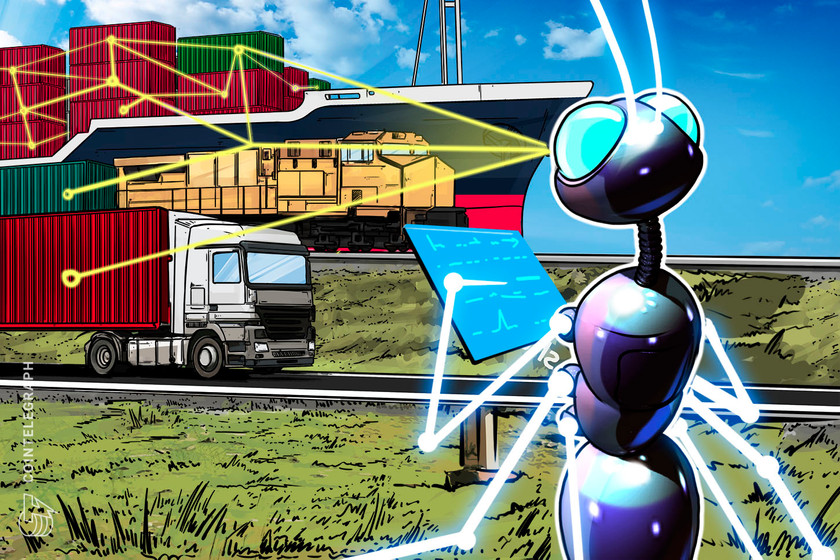How blockchain technology can revolutionize international trade
Blockchain technology has proven to be transparent and could make international trade seamless and even safer.
 Since time immemorial, technological innovations have shaped the structure of commerce and trade. The discovery of electricity encouraged mass production, and the advent of steam engines ushered in an era of mechanized production.
Since time immemorial, technological innovations have shaped the structure of commerce and trade. The discovery of electricity encouraged mass production, and the advent of steam engines ushered in an era of mechanized production.
From information to communication, technology has been used everywhere to make life easier. For this reason, blockchain technology has been leveraged by many as the next big thing, given its use cases that cut across many industry verticles.
Primarily used to keep records of transactions, blockchain technology is a type of distributed ledger technology.
Blockchain makes the differenceAccording to Statista, blockchain makes keeping data records easier, more transparent and even more secure. Primarily due to its resistance to tampering, blockchain offers temporal information about transactions, whether between individuals, businesses, supplier networks, or even an international supply chain.
It is also common for blockchain to be just a technology for Bitcoin (BTC). However, this assumption could not be more wrong. While the technology emerged alongside Bitcoin in 2008, however, today its use cases have evolved far beyond cryptocurrencies. From finance to e-commerce, food security, voting exercises and supply chain management, its applications span virtually every sector of the global economy, including areas directly or indirectly related to international trade.
The value chain linked to international trade is particularly complex. While its transactions involve multiple actors, its other aspects like trade finance, customs administration, transportation and logistics all benefit from the adoption of blockchain technology.
According to Statista, cross-border payments and settlements represent the most important use cases for blockchain technology, especially given the many past efforts to digitize business transactions.
To date, the potential of blockchain to improve the efficiency of business processes is already being explored. For example, the Open Food Chain blockchain project is working to improve food safety through its Komodo...

Blockchain technology has proven to be transparent and could make international trade seamless and even safer.
 Since time immemorial, technological innovations have shaped the structure of commerce and trade. The discovery of electricity encouraged mass production, and the advent of steam engines ushered in an era of mechanized production.
Since time immemorial, technological innovations have shaped the structure of commerce and trade. The discovery of electricity encouraged mass production, and the advent of steam engines ushered in an era of mechanized production.
From information to communication, technology has been used everywhere to make life easier. For this reason, blockchain technology has been leveraged by many as the next big thing, given its use cases that cut across many industry verticles.
Primarily used to keep records of transactions, blockchain technology is a type of distributed ledger technology.
Blockchain makes the differenceAccording to Statista, blockchain makes keeping data records easier, more transparent and even more secure. Primarily due to its resistance to tampering, blockchain offers temporal information about transactions, whether between individuals, businesses, supplier networks, or even an international supply chain.
It is also common for blockchain to be just a technology for Bitcoin (BTC). However, this assumption could not be more wrong. While the technology emerged alongside Bitcoin in 2008, however, today its use cases have evolved far beyond cryptocurrencies. From finance to e-commerce, food security, voting exercises and supply chain management, its applications span virtually every sector of the global economy, including areas directly or indirectly related to international trade.
The value chain linked to international trade is particularly complex. While its transactions involve multiple actors, its other aspects like trade finance, customs administration, transportation and logistics all benefit from the adoption of blockchain technology.
According to Statista, cross-border payments and settlements represent the most important use cases for blockchain technology, especially given the many past efforts to digitize business transactions.
To date, the potential of blockchain to improve the efficiency of business processes is already being explored. For example, the Open Food Chain blockchain project is working to improve food safety through its Komodo...
What's Your Reaction?















![Three of ID's top PR executives quit ad firm Powerhouse [EXCLUSIVE]](https://variety.com/wp-content/uploads/2023/02/ID-PR-Logo.jpg?#)







